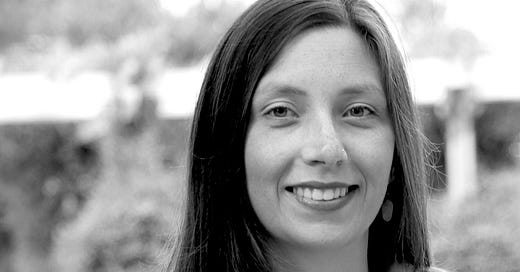Dear Reader,
Although I know they’re not the same, I love the phrase “catholic taste” in part because I love Catholicism. That’s probably why I noticed the phrase in the first place. But I should explain that I am not a Catholic, not even close. Many of my favorite people are. My husband can best be described as a fallen Catholic, for one. And many of my best friends through the years have been. So my familiarity has led to a bit of a fascination. Catholicism has shaped the human story and through history has been rife with drama and intrigue; so much tyranny and so much heroism. Then there are the guilt-ridden characters filled with shame. It’s great stuff. They have definitely made the human story more interesting. But this isn’t an essay on that kind of Catholic, not really. This is an essay about catholic taste, with a lowercase c.
I can vaguely remember encountering the phrase for the first time and having to look it up to be sure. It means broad in taste or interests, free of prejudices and attachments, respectful of differing views, and upon reading the definition, I felt a little seen.
Taste is personal, obviously. We like or don’t like things based on our own personal ideas of what is good or valuable. But we recognize and appreciate taste in others, regardless of whether their preferences align with ours. And oftentimes we connect through shared tastes, and then people introduce us to their tastes, which can serve as a wedge that opens us up to new things, whether that’s books or art of food.
But taste is also aspirational. I want to be well-read. I want to look at the paintings and see more than I could the last time I saw it. I want to be able to read something and have a good sense of what the writer read and how it fits. And if I don’t know, then I want to find out. I aspire to always have a kick-ass book recommendation for the people who have the same for me. I have great taste, in my opinion, and I only want it to get better.
Developing taste comes from consumption. Every new experience adjusts taste—ratcheting it up or broadening it out. The more I write criticism, the more I find myself thinking about taste. I have to think about what I like and don’t like and why. It’s an exercise in cultivating my taste, thinking about what I consume. Lately, they’re my favorite kind of essays to write. Although they aren’t exactly personal essays, sharing my taste is kind of personal. And although I don’t have any real hard plans about what I want to write about in my Substack letters, I’ll be sharing according to my taste. So here I am defining mine for you, or at least laying down a starting point.
I have, or, rather, aspire to catholic taste. I have spent my life both reading harder and reading to escape. I’m as conscious of my own attempts to outrun the fact that I’m a working-class girl from the Midwest, as I am of my desire to honor and appreciate that about myself. I’m sure I lack sophistication on aspects of life in numbers unknown-to-me. And maybe saying I have catholic taste is just another way of saying I’m a generalist, which I’m kind of that too. But in my opinion, with catholic taste is the best way to experience the world. It’s about trying new things and not judging books by their covers and not dismissing things that you haven’t experienced yourself. And when I started thinking about writing a Substack, I knew this was what I wanted it to be about, or at least embody.
To me, the phrase catholic taste describes me because two of my absolute favorite movies are Fifty First Dates and Out of Africa. Two of my favorite authors are Susan Elizabeth Phillips and Dana Spiotta. I love gonzo journalism and postmodernism and romancelandia. My TBR list for 2023 includes all the romance novels I can get my hands on and the rest of the French classics on my shelf. I think both feminism and James Bond are fantastic. And I’m liable to write about all of those things in my letters to you, dear reader.
Being a snob is passé. There is no judgment here. Catholic taste, as far as I’m concerned, is the most sophisticated way to be. Think of me as the Anthony Bourdain… or perhaps: the Dave Chang of readers. I’ll try to keep it interesting.
And I’m not going to lie, as far as taste goes, I’m definitely more into it if there’s some Catholicism. Whether we’re talking Two Mules for Sister Sarah or Les Miserables, Sister Act or Doubt, or my personal favorite The Sound of Music; if there’s a nun in it, even better. My fascination is both a little silly and completely serious. I may never write about it again, but just know that some part of my mind will always be thrilled to see a nun.
Until next time,
Melinda




I loved what you said about fallen Catholics. My husband refers to himself as a recovering Catholic. : )